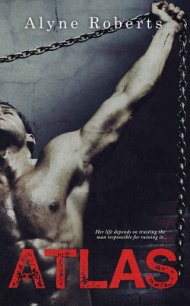Slow Man - Coetzee J. M. (книги хорошего качества .TXT) 📗
'Remember, Paul, it is passion that makes the world go round. You are not analphabete, you must know that. In the absence of passion the world would still be void and without form. Think of Don Quixote. Don Quixote is not about a man sitting in a rocking chair bemoaning the dullness of La Mancha. It is about a man who claps a basin on his head and clambers onto the back of his faithful old plough-horse and sallies forth to do great deeds. Emma Rouault, Emma Bovary, goes out and buys fancy clothes even though she has no idea of how she is going to pay for them. We only live once, says Alonso, says Emma, so let's give it a whirl! Give it a whirl, Paul. See what you can come up with.'
'See what I can come up with so that you can put me in a book.'
'So that someone, somewhere might put you in a book. So that someone might want to put you in a book. Someone, anyone – not just me. So that you may be worth putting in a book. Alongside Alonso and Emma. Become major, Paul. Live like a hero. That is what the classics teach us. Be a main character. Otherwise what is life for?
'Come on. Do something. Do anything. Surprise me. Has it occurred to you that if your life seems repetitive and circumscribed and duller by the day, it may be because you hardly ever leave this accursed flat? Consider: somewhere in a jungle in Maharashtra State a tiger is at this very moment opening its amber eyes, and it is not thinking of you at all! It could not care less about you or any other of the denizens of Coniston Terrace. When did you last go for a walk under the starry sky? You have lost a leg, I know, and ambulating is no fun; but after a certain age we have all lost a leg, more or less. Your missing leg is just a sign or symbol or symptom, I can never remember which is which, of growing old, old and uninteresting. So what is the point of complaining? Hark!
I am, yet what I am none cares or knows.
My friends forsake me like a memory lost.
I am the self-consumer of my woes.
'Do you know the lines? John Clare. Be warned, Paul: that is how you will end up, like John Clare, sole consumer of your own woes. Because no one else, you can be sure, will give a damn.'
He never knows, with the Costello woman, when he is being treated seriously and when he is being taken for a ride. He can cope with the English, that is to say the Anglo-Australians. It is the Irish who have always given him trouble, and the Irish strain in Australia. He can see that someone might want to turn him and Marijana, the man with the stump and the mobile Balkan lady, into comedy. But despite all her gibing comedy is not quite what Costello seems to have in mind for him, and that is what baffles him, that is what he calls the Irish element.
'We should move indoors,' he says.
'Not yet. O starry sky… How does it go on?'
'I don't know.'
'O starry sky, o something something. How has it come about, do you think, that I am stuck with so incurious, so unadventurous a man as you? Can you explain? Does it all come down to the English language, to your not being confident enough to act in a language that is not your own?
'Ever since you reminded me of your French past, you know, I have been listening with pricked ears. And yes, you are right: you speak English, you probably think in English, you may even dream in English, yet English is not your true language. I would even say that English is a disguise for you, or a mask, part of your tortoiseshell armour. As you speak I swear I can hear words being selected, one after the other, from the word-box you carry around with you, and slotted into place. That is not how a true native speaks, one who is born into the language.'
'How does a native speak?'
'From the heart. Words well up within and he sings them, sings along with them. So to speak.'
'I see. Are you suggesting I return to French? Are you suggesting I sing Frere Jacques?'
'Don't mock me, Paul. I said nothing about returning to French. You lost touch with French long ago. All I say is, you speak English like a foreigner.'
'I speak English like a foreigner because I am a foreigner. I am a foreigner by nature and have been a foreigner all my life. And I don't see why I should apologise. If there were no foreigners there would be no natives.'
'A foreigner by nature? No, that is not it, don't put the blame on your nature. You have a perfectly good nature, if a little underdeveloped. No, the more I listen the more convinced I am that the key to your character lies in your speech. You speak like a book. Once upon a time you were a pale, well-behaved little boy – I can just see you – who took books too seriously. And you still are.'
'I still am what? Pale? Well-behaved? Underdeveloped?'
'A little boy afraid of sounding funny when you open your mouth. Let me make a proposal, Paul. Lock up this flat and bid farewell to Adelaide. Adelaide is too much like a graveyard. There is no more life for you here. Come and live with me in Carlton instead. I will give you language lessons. I will teach you how to speak from the heart. One two-hour lesson a day, six days a week; on the seventh day we can rest. I will even cook for you. Not as expertly as Marijana, but serviceably enough. Then after dinner, should the spirit move you, you can tell me more stories from your treasure-hoard, which I will afterwards tell back to you in a form so accelerated and improved that you will hardly recognise them. What else? No rough pleasures – you will be relieved to hear that. As clean as the blessed angels we will be. In all other respects I will take care of you; and perhaps in return you will learn to take care of me. When the appointed day arrives, you can be the one to close my eyelids and stuff cotton wool up my nostrils and recite a brief prayer over me. Or vice versa, if I am the one left behind. How does that sound to you?'
'It sounds like marriage.'
'Yes it is, marriage of a kind. Companionate marriage. Paul and Elizabeth. Elizabeth and Paul. Companions on the way. Or if Carlton doesn't appeal to you, we could buy a camper van and tour the continent taking in the sights. We could even catch a plane to France. How about that? You could show me your old haunts, the Galeries Lafayette, Tarascon, the Pyrenees. No end of options. Come on, what do you say?'
She may be Irish, but she sounds sincere, or half sincere. Now his turn.
He rises and stands propped against the table before her. Can he, for once, make his voice sing? He closes his eyes, empties his mind, waits for words to come.
'Why me, Elizabeth?' come the words. 'Why, of all the many people in the world, me?'
The same old words, the same disappointing old song. He cannot get beyond it. Yet until he has an answer to his question, whatever in the heart does the singing will be clogged.
Elizabeth Costello is silent.
'I am dross, Elizabeth, base metal. I am not redeemable. I am of no use to you, to anyone, of no value. Too pale, too cold, too frightened. What made you choose me? What gave you the idea you could make anything of me? Why do you stay with me? Speak!'
She speaks.
'You were made for me, Paul, as I was made for you. Will that do for the present, or do you want me to give it to you plenu voce, in full voice?'
'Speak it in so full a voice that even a poor dullard like me can understand.'
She clears her throat. 'For me alone Paul Rayment was born and I for him. His is the power of leading, mine of following; his of acting, mine of writing. More?'
'No, that is enough. Now let me ask you straight out, Mrs Costello: Are you real?'
'Am I real? I eat, I sleep, I suffer, I go to the bathroom. I catch cold. Of course I am real. As real as you.'




